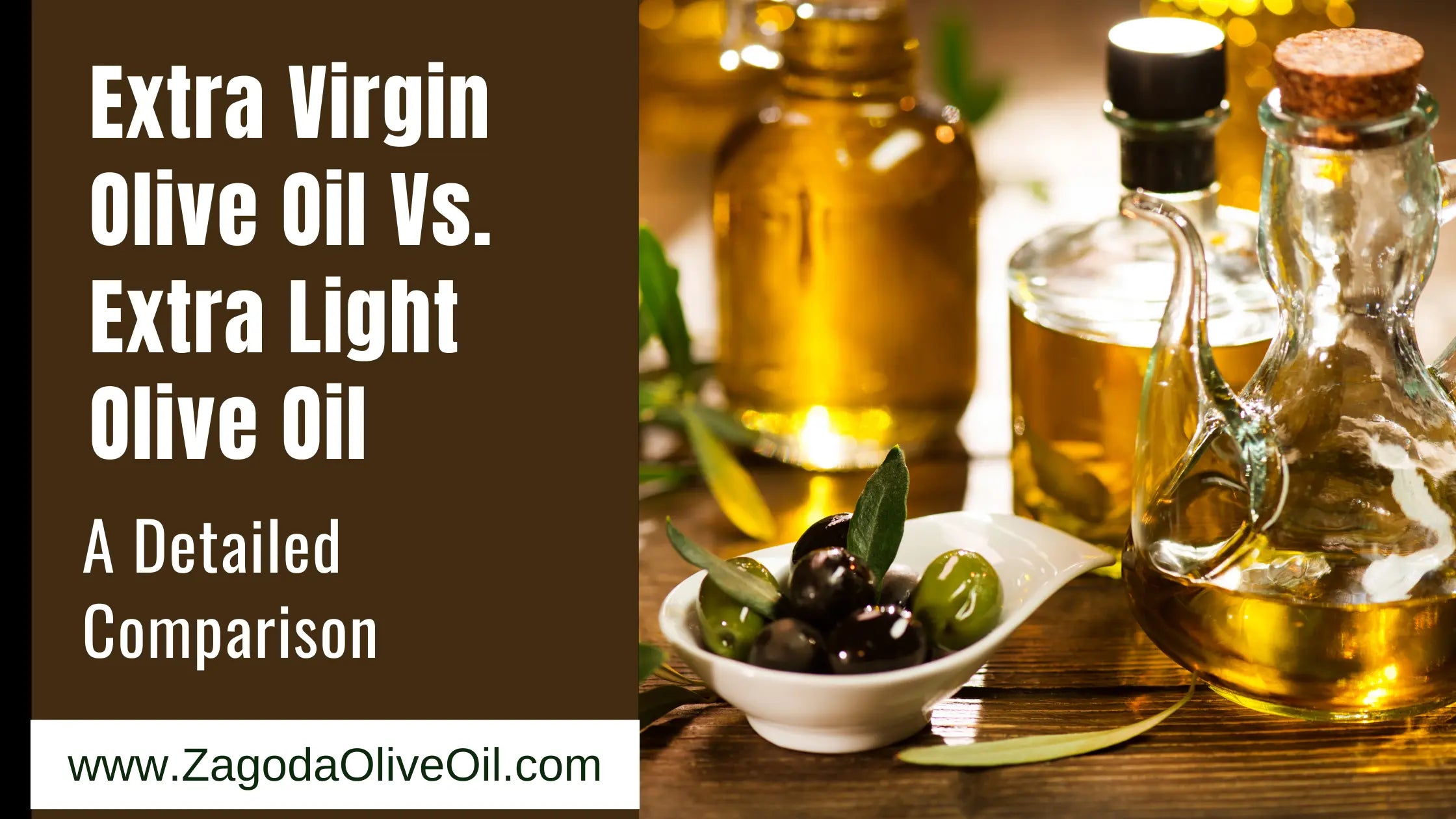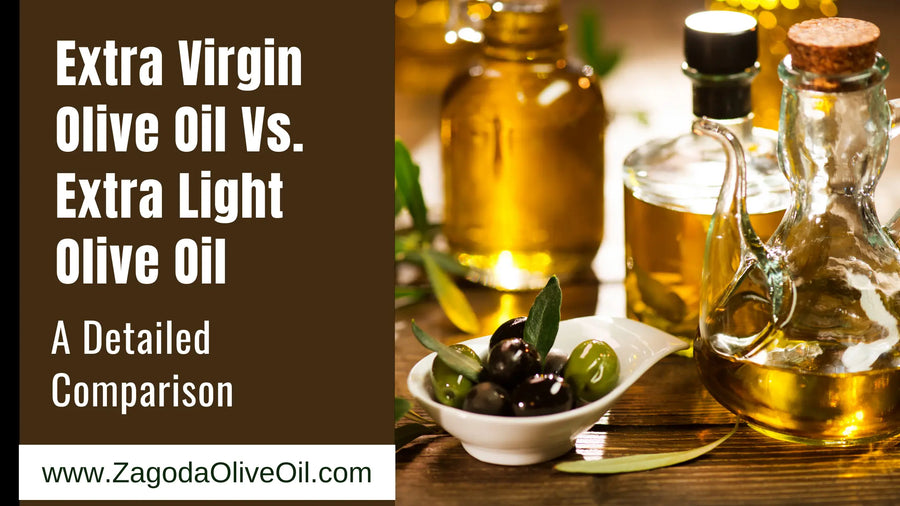Olive oil is an outstanding choice when we need to use fat in our cooking or dressings because of its high monounsaturated fat content, which is thought to be heart-healthy.
But even though the label labels olive oil as light or extra light nearly every one of them has 14 grams of fat per tablespoon. In a similar vein, each tablespoon of olive oil contains roughly 120 calories.
In this article, we tell you about the clear difference between extra virgin olive oil and extra light olive oil.
What is Olive Oil?
Olive oil is more than simply a staple in the kitchen. Aphids, spider mites, and whiteflies are among the most bothersome invaders. Olive oil's natural ability to repel pests could be challenging to overcome.
Not only do these little pests aggressively feed on your plants but they also engage in hazardous activities. They also eat essential plant parts like the hairs on the leaves and roots.
However, they can serve as carriers of harmful fungi and bacteria. The consequences can be disastrous, ranging from significantly declining health to decreased plant output, and in extreme cases even. They also eat essential plant parts like the hairs on the leaves and roots.
Crushing the olives between two large stones and then pressing the pulp to extract the oil is the earliest way of getting the oil. The better the less heat is produced during processing. The term "extra-virgin" describes an olive oil that has undergone initial pressing.
EVOO is regarded as an unrefined oil since it is essentially the cold-pressed oil obtained from simply pressing whole olives without the use of additional heat or chemical processing.
To preserve the finest flavors and health advantages of the oil careful consideration is taken during the extraction process to maintain the temperature of the grinding and pressing as low as possible. Because of the strict manufacturing guidelines.
Are olive oil colors different?
When comparing this particular brand of olive oil with extra-virgin olive oil against each other side. The extra-virgin olive oil is notably darker in color than the normal olive oil, which is lighter and brighter in color.
Olive oil: refined vs unrefined
To make things more complicated, olive oil is classified as either refined or unrefined. The basic difference between refined or unrefined olive oil is essential vitamins. Many people prefer virgin oil over light oil. The quality of olive oil is a very important thing for food taste.
Extra Light Olive Oil
As compared to other extra virgin olive oil this light olive oil is manufactured differently. The olive flavor is very mild in these lower-shelf categories. Although these are the bottles that are currently in the cupboards of many home chefs.
These oils are meant only for cooking not for drizzling or salad dressings though you may still deep-fry with them. It seems like you might as well switch to the less expensive vegetable or corn oil because of these reasons.
What we would refer to as "regular" olive oil is also identifiable by its label: only olive oil or pure olive oil. That is an incredibly poor sign of very old oil or low-quality olives.With a lighter color, more neutral flavor, and an oleic acid content of 3-4%, pure olive oil is of lower quality than extra-virgin or virgin olive oil. This kind of olive oil is suitable for all cooking purposes.
This is the kind of olive oil where people could be confused by the term. What it means is as follows:
- The light in olive oil means it contains less calaories. Instead, it's a marketing word for the lighter flavor of the oil.
- Light olive oil is a refined oil with a higher smoke point and a neutral flavor. It is suitable for grilling, frying, baking, and simmering.
Explore the Olive Oil's Health Benefits
According to science, the nutrients found in olive oil's polyphenols are also present in wine, tea, cocoa, fruits, and vegetables, among other drinks and substances.
Olive oil is among the best for cooking. Moreover, it has monounsaturated fatty acids which are beneficial fats that help reduce blood levels of harmful cholesterol and heart disease risk. Extra virgin olive oil (EVOO) has a higher concentration of antioxidants fewer chemicals and free radicals than ordinary olive oil, and an abundance of healthy fats.
Although high-quality extra virgin olive oil is often saved for special events, it should always be used while it's still fresh! Since olive oil has a shelf life of 18 to 24 months once it is bottled, extra virgin olive oil should be purchased between 12 and 18 months after harvest and used within six months of opening.
Health Benefits of Light Olive Oil
It should be made clear on the bottle label that light olive oil refers to the flavor and color of the olive oil, not its calorie content. Extra-light olive oil is usually pale and mild because it is highly refined. Due to its fewer calories, most people use this light olive oil.
Extra-light olive oil has a higher smoke point than regular or extra-virgin olive oil making it perfect for baking and other cooking techniques that demand a neutral-tasting oil. It can therefore withstand higher temperatures before deteriorating.
Extra-virgin olive oil has the purest taste, so use it for salad dressings or other recipes where the flavor and fruitiness of the oil are vital. The fruit's oil is extracted directly from it; it may be filtered, but no heat is applied.
Unveiling the difference between Extra Virgin Olive Oil Vs Extra Light Olive Oil
Extra virgin olive oils that are cold-pressed, stone-pressed, and unfiltered taste superior to the majority of them. Certain so-called pure olive oils are anything but, many are a blend of processed oils and extra virgin olive oils. To be sure look at the label. The only true distinction in light olive oil is that it is processed, which gives it a lighter tint.
There are more chemicals and fewer nutrients in this even though it can be heated to a greater temperature and last longer. In the end, if possible choose extra virgin olive oil that is heart-healthy.
Conclusion
To conclude this article, we discuss the clear difference between extra virgin oil and extra light oil. As we know both oils have different benefits according to their categories. Both oils go through with any meal. We hope that you liked our blog.


